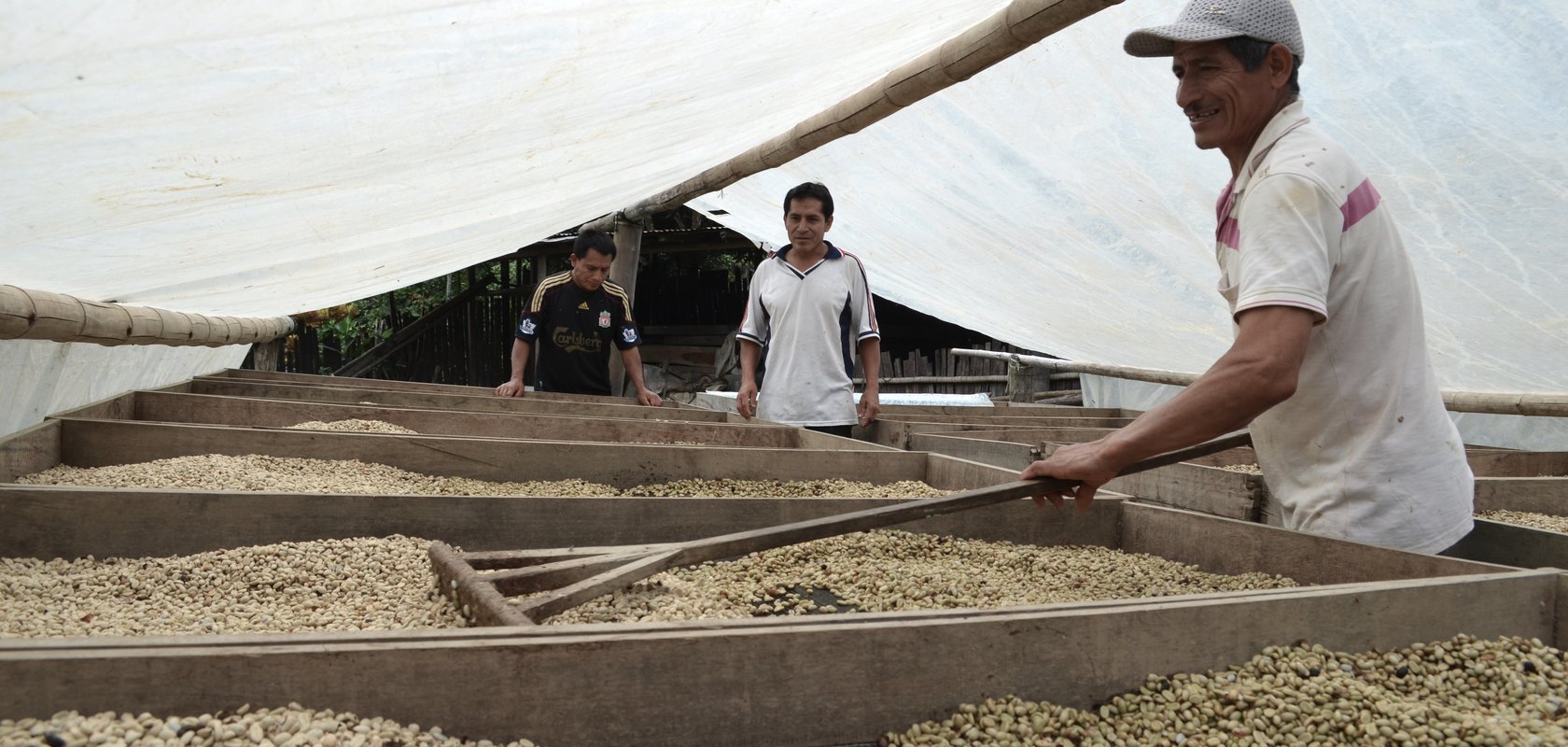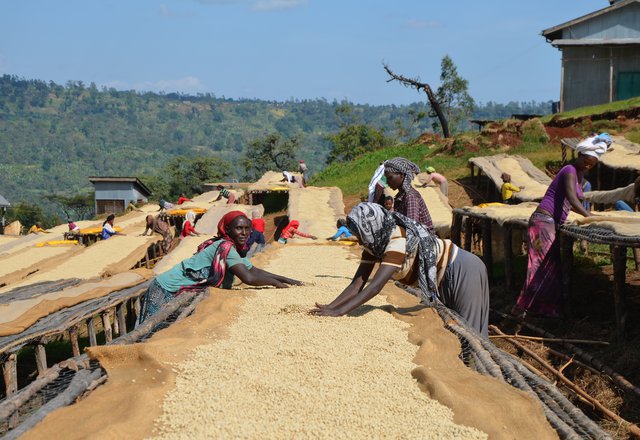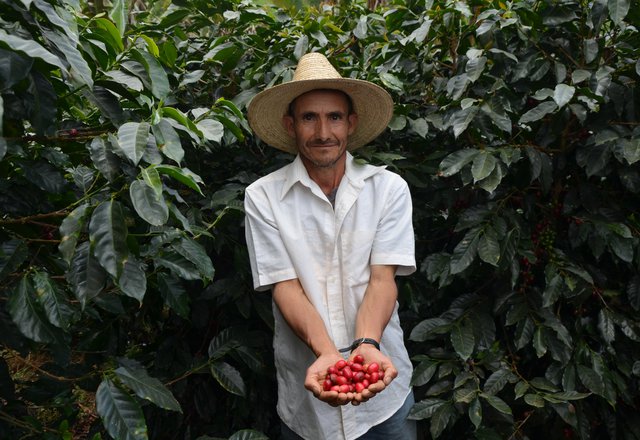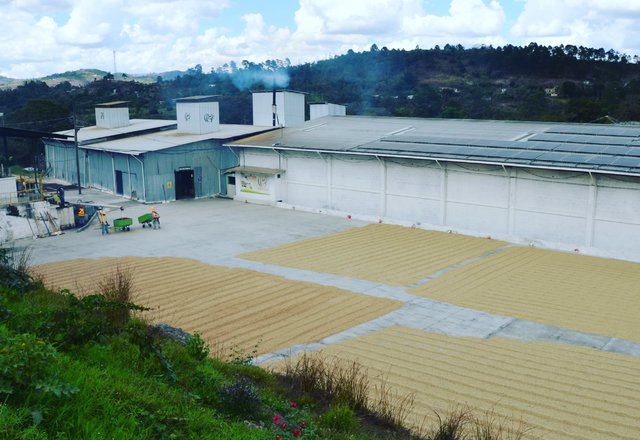We’ve all heard the words “fair trade” bandied about, but what does the concept of fair trade actually mean? We talk to a key figure in our supply chain, Justin Purser, manager of Trade Aid New Zealand’s coffee programme, about why it matters
If you think running a successful business from where you live is challenging, consider for a moment that farmers and artisans in developing countries don’t generally have the same global market access you might. That’s where fair trade comes in.
A cash crop grown primarily in Africa, Latin America, and Southeast Asia, coffee is a $70-billion-a-year industry supplied mostly by small-scale farms. The people who run them, tied to their land with few to no viable alternatives to make a living, are vulnerable to exploitation by unscrupulous buyers who don’t always have their best interests at heart.
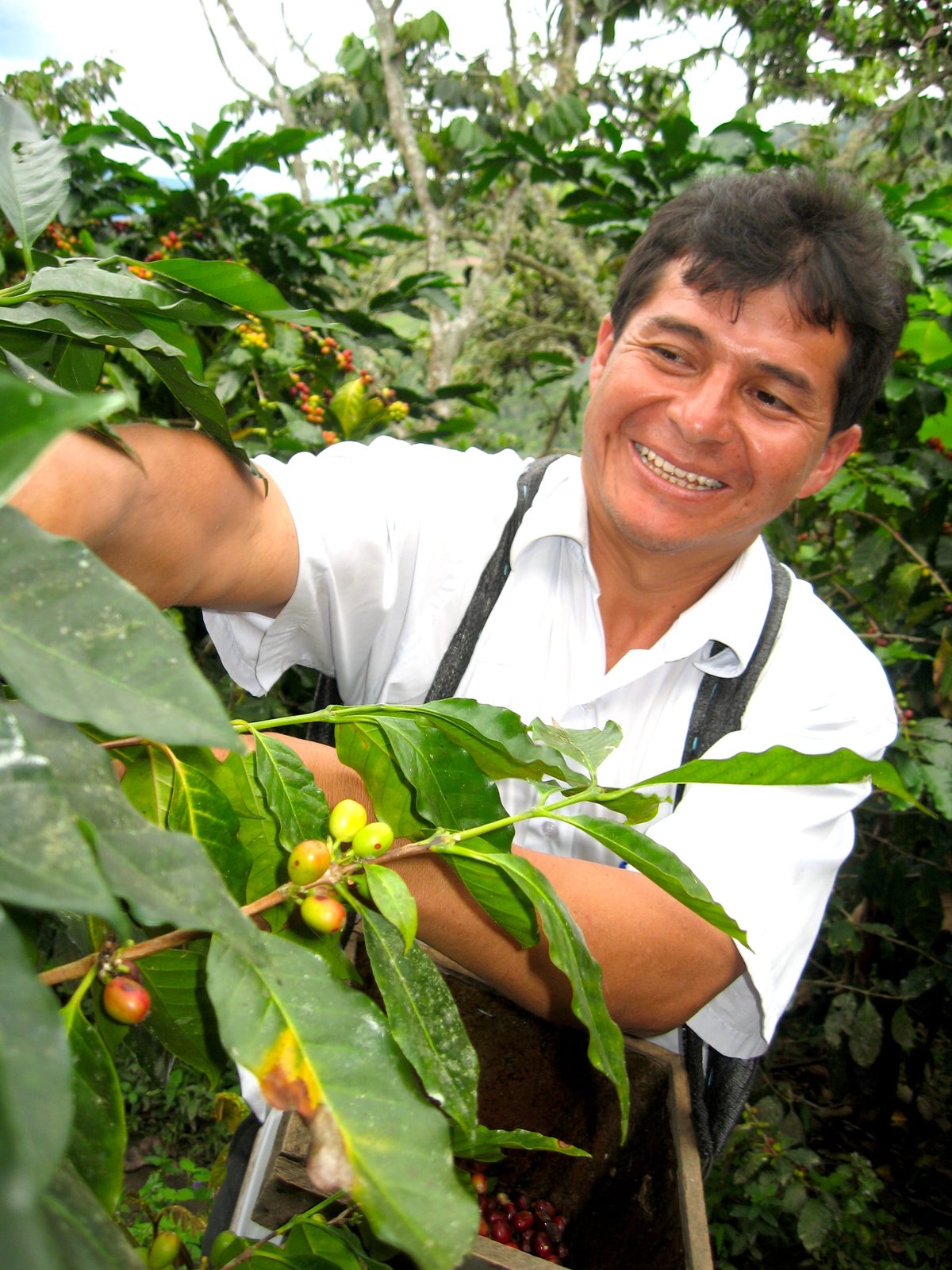
“70 per cent of the world’s coffee is grown by producers who have no more than two hectares of land, and these are the producers we focus on,” says Justin Purser, food manager at Trade Aid, New Zealand’s largest social enterprise supporting the fair trade model – and Common Good’s supplier of fair trade organic coffee beans. “It’s a game of supply and demand where buyers inevitably have more power in the relationship than producers,” he explains. “We have seen in coffee, as we’ve seen in many other agricultural commodities, that prices have fallen steadily over the last century.”
Why? It’s a complex mix of micro and macroeconomic factors, muddied further by the coronavirus pandemic, which has seen a worldwide drop in coffee consumption. Production and supply changes, weather, political instability, market speculation, and more all have an impact on mass perception and therefore prices. In the last few years, it’s been about what’s going on in Brazil, the world’s leading producer of arabica beans. In 2019, a pound of coffee beans cost $1 on the Intercontinental Exchange, the lowest in years – and a virtual death sentence for already-struggling farmers and their families. A rise in production, particularly in Brazil, and the plummeting value of Brazil’s currency, the real, appear to be the chief culprits.
Coffee co-ops: Safety in numbers
To give themselves a fighting chance, small-scale growers of coffee or other cash crops like sugar and cocoa join together to form co-operatives, thereby augmenting their production, political presence, and access to basic services. Many rely on fair trade enterprises, who commit to paying everyone along the supply chain a fair living wage, to fund those services as well as community development projects.
To supply a fair trade organisation like Common Good Coffee and Trade Aid, co-operatives must be socially, economically, and environmentally sustainable in everything they do – while providing a product with actual market demand, in the quantities demanded. Trade Aid seeks out coffee co-operatives they believe can deliver a product that suits New Zealand market tastes while benefitting its members, which in the case of the Sidama co-operative in Sidamo, Ethiopia, included electricity and improved road infrastructure, put in place to facilitate coffee production and transport.
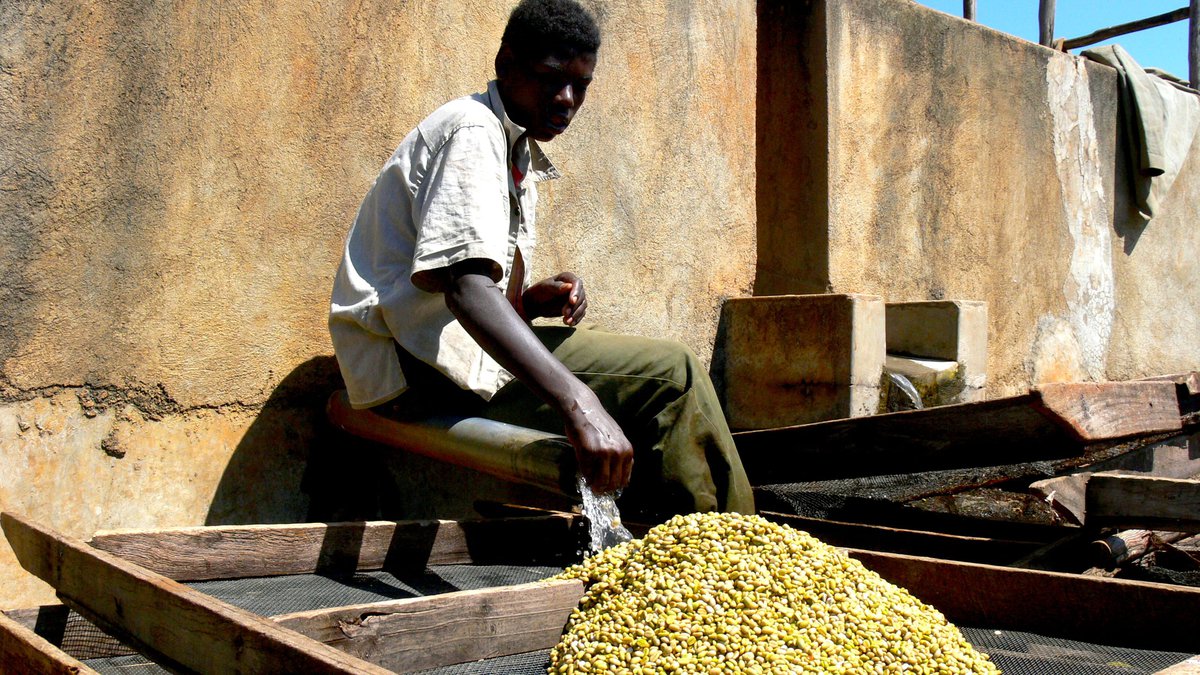
Coffee processing in Sidama, Ethiopia.
"A major challenge in Ethiopia is that the central government is not providing infrastructure in rural areas because there’s so much pressure around urban development these days,” Justin says. “The extra money growers receive from the sale of their coffee to us through the co-operatives helps cover essential needs, including family health, education, food security, and farm maintenance."
The Sidama co-operative is the source of the beans found in Common Good’s Ethiopian coffee, an aficionado’s favourite known for its lively blueberry aroma.
Improved techniques, increased yield
Once vetted through in-person visits – Justin has travelled to all the coffee co-op Trade Aid deals with but one, Democratic Republic of the Congo – co-ops are supported through a raft of initiatives collectively designed to help level the playing field and create a more sustainable livelihood from coffee. Being part of a co-op typically means access to credit, reinvestment in farms, and opportunities to learn better farming and processing techniques, known in the industry as “technical support.”
A team of agronomists hired by the cooperative will travel from farm to farm, helping farmers improve the quality and quantity of coffee they can produce with the resources they have available. Technical support could include improved pruning techniques and looking at what varieties they’re planting and how they’re being processed.
“Maybe they’ve purchased their own dry processing mill, or it could be in the creation of more drying patios, if that would help produce a higher-quality coffee. Or it could be in the form of nurseries, if they’re providing more high-quality seedlings for their farmers at cost or free of charge.”
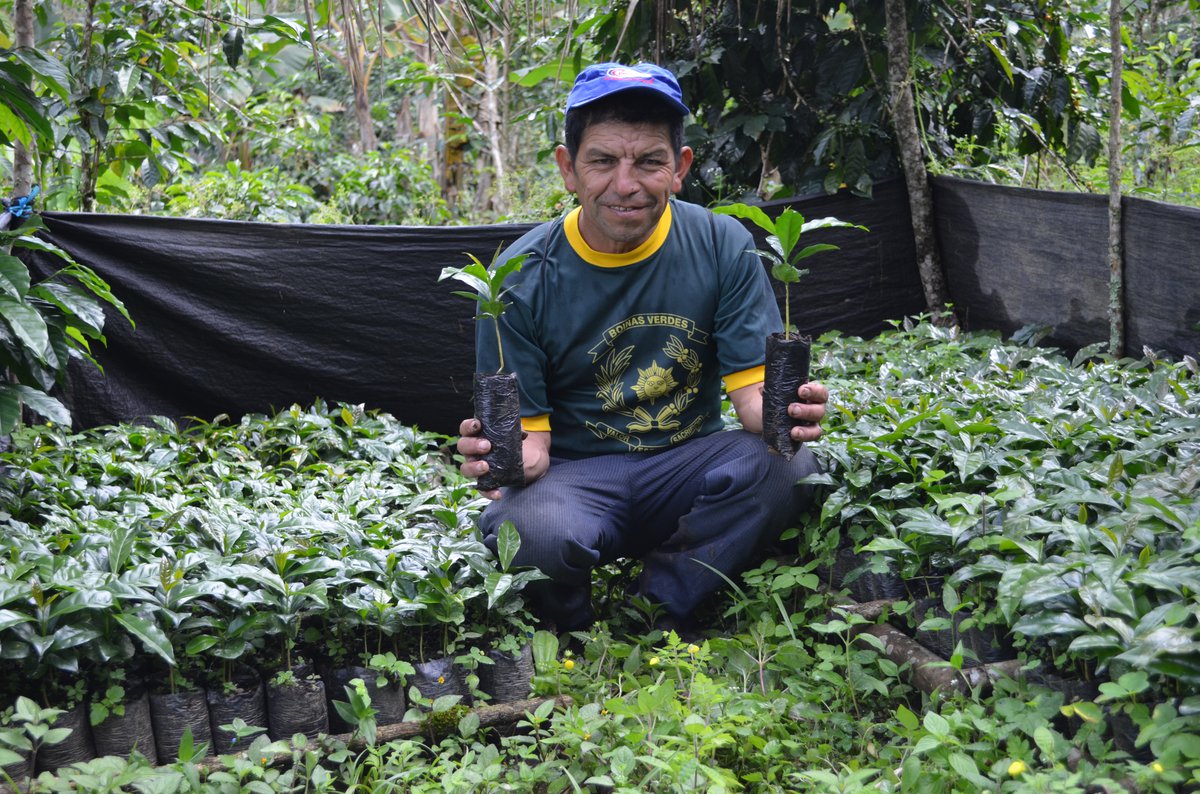
The ANEI co-op in Colombia, which supplies beans for Common Good’s popular and versatile Colombian roast, had very low production compared to other Colombian coffee farms before Trade Aid got involved. “With a team of technical staff, they’re going about increasing productivity yield and measuring success. They’ve already, on average, more than doubled their production.”
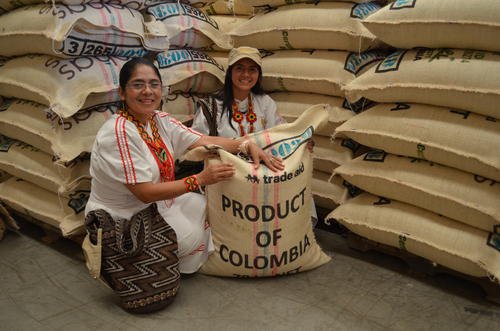
Production volume isn’t the only challenge they face: The ANEI co-op was founded to promote the cultural preservation of the Arhuaco, Wiwa, and Kogui indigenous peoples. “It’s akin to the situation we’ve seen in Australia, where Aborigines were denied the use of their own language and culture by the colonists. The same thing happened in Colombia. But now we have an indigenous-owned organisation taking control of its own lives and doing so with the support of buyers like Common Good, using Trade Aid coffee as the vehicle.”
How can I be part of this?
Coffee is an industry in crisis, fuelled by a devastating combination of climate change – 60 percent of wild coffee species are facing extinction – and a sharp drop in bean prices. An inability to make a living is causing many growers to give up on their farms and, in many cases, leave their countries altogether for the First World, including the United States and Europe.
Surprisingly, the drop in arabica prices barely trickles down to the average consumer, particularly patrons of coffee shops and those who buy premium blends. Milk, sugar, employment costs, and rent all contribute to the cost of a barista-made latte, yet the dividends for small-scale coffee farmers are smaller than ever.
By buying only fairly traded coffee, you can support social and environmental justice and a better standard of living for the people who toil so hard to bring you your morning cuppa. For many, their future in coffee is in doubt, and social premiums like those provided by Common Good through Trade Aid allow growers and their families to survive while buying them time to find other economic avenues.
After 30 years of working for Trade Aid, Justin remains humble about the very important work they do: “We could not do much, achieve much, if we didn’t have the ongoing support of New Zealand roasters like Common Good - and of course their customers, who are choosing to make a difference with each purchase of coffee they make .”
Delicious beans for socially conscious human beings: Visit the Common Good Coffee Shop

